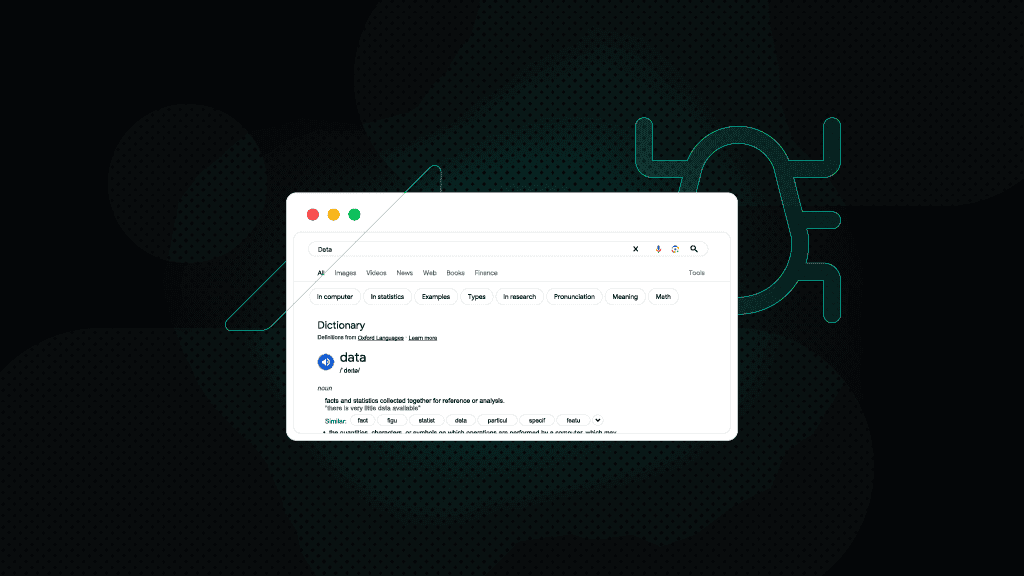Random IP Address: Examples, Use Cases, Risks, and Alternatives
From web scraping to getting around geo-blocks, IPs play a huge role in how the internet works behind the scenes. But there’s a flip side – using a free or random IP from a sketchy provider can cause way more trouble than you’d expect. It can break compliance rules, mess with your data, or even lead to bigger operational and reputational problems. Dive into this article to learn more about the risks of random IP addresses.
Kotryna Ragaišytė
Last updated: Aug 19, 2025
8 min read

How do IP addresses get generated, allocated, and how do they work?
An IP address (IPv4, IPv6) is a digital device’s numerical identity in the global network. Before diving into the shady mechanics of random IP addresses or free proxy IPs that you find online, wouldn’t it be helpful to understand how IP addresses work and how they help in information (packet) transfer over the internet? Shall we start by decoding the system for IP allocation? There are a couple of available IP formats:
- IPv4 addresses, for example, 93.184.216.34.
- IPv6 addresses, for example, 2001:db8:3333:4444:CCCC:DDDD:EEEE:FFFF.
There are also 2 levels of IP allocation hierarchy:
- IANA (Internet Assigned Numbers Authority) manages the global pool of IP addresses, divides them into large blocks of legitimate IPs, and allocates to RIRs (Regional Internet Registries) like ARIN (North America), RIPE (Europe, Middle East, parts of Central Asia), LACNIC (Latin America & Caribbean), AFRINIC (Africa), and APNIC (Asia-Pacific).
- RIRs pass smaller blocks to governments, ISPs, or enterprises, which then assign them to end devices (laptops, phones, servers).
When your device sends a packet, TCP/IP embeds your IP in the header, so that the target server can use this as your device address to establish a connection with your device. In technical terms, this connection-establishing process is called a TCP/IP handshake. Once the connection is successfully established, the routers use your IP as the “return address,” ensuring response packets traverse back to you through the same path that was used for the handshake connection. This handshake is not possible if your device IP address is spoofed, for example, incorrect or fake. Therefore, the data you expect after spoofing the TCP/IP layer by setting a random IP address in your request header is never going to find the route to your device.
What’s a random IP address?
A random IP address is an arbitrary IPv4 or IPv6 value that isn’t allocated to you by an Internet Service Provider (ISP) or the Internet Assigned Numbers Authority (IANA). It could be part of any network, i.e., valid (active, inactive), invalid, restricted, or blacklisted. You've got no inherent right or mechanism to use it. In simpler words, a random IP is just a shot in the dark. Sometimes it works, usually it doesn’t.
Often, random IPs get confused with a fake IP, proxy, or VPN. At the core, they are all different. A fake IP is basically using an IP to pretend to be someone else. A proxy is a valid IP that passes your request through a middleman. A VPN hides you inside an encrypted tunnel.
Term
How it works
IP visibility
Security
Common use cases
Random IP
Arbitrary IP chosen without IANA/RIR allocation
Usually not routable or may conflict with existing networks
None
Misconfigured devices, amateur attempts at anonymity
Fake IP (spoofed)
Falsifies source IP in packet headers
Destination sees spoofed IP, not the real sender
None (often malicious)
DDoS attacks, bypassing simple IP filters, and network testing
Proxy
Intermediary server forwards requests, re-initiating connections
Destination sees proxy’s IP
Limited (no encryption unless HTTPS is used)
Web scraping, content access control, and bypassing geo-blocks
VPN
Encrypts and tunnels all traffic to the VPN server, changes IP at the network level
Destination sees the VPN server’s IP
Strong (encryption + integrity)
Secure remote access, privacy, and bypassing censorship
Are random IP addresses useless?
When people mention “random IPs,” it might sound like there are endless addresses just waiting to be used. After all, it’s just combining four sets of numbers into a 32-bit address, right? In reality, though, the IP space is already carefully allocated, segmented, and regulated, and not every address is safe or available to use.
We mentioned earlier that random IPs aren't routable. It’s because the TCP/IP handshake is not possible. But did you wonder, "Why so?" Well, basically, it's because IANA is a central registry to manage a global pool of IP addresses. Routers use a routing table to decide where to send packets, and this routing table traces back to the IP allocations IANA made to RIRs. Technically, anyone can set up their own IP registry, but without buy-in from the major ISPs and RIRs, your random IP addresses won’t propagate in global routing tables. IANA’s authority is held sacred by all stakeholders to ensure a stable and conflict-free Internet.
So yeah, to answer the question, any random 32-bit number in your TCP/IP connection requests won’t function as your device IP address, even if it is a valid IP address. For example, a random IP 203.0.113.45 might belong to a bank’s server in Australia. Using it without authorization won’t magically give you access or connectivity because internet routing tables will reject packets not tied to your registered network and device.
In the above Python example, the IP address 203.0.113.45 passed as a parameter value to the GET request must be a real, reachable server that knows how to forward the request to example.com and send the reply back to you. If it is just a random IP, the chances of establishing a TCP/IP Handshake connection with the target device are minuscule. That’s where proxy providers like Decodo come in.
What’s a random IP address generator?
A random IP address generator is a tool or program that produces IP addresses selected at random from the valid IPv4 or IPv6 address space, often for testing, simulation, or anonymization purposes. However, as explained in the previous section, the probability of yielded random IP addresses being valid and useful is very low.
Random IP address generator example in Python
File: random_ip.py
Output (random IP address example):
Random IP address generator example in JavaScript
File: random_ip.js
Output (random IP address example):
Use cases of random IP addresses
IP addresses are crucial for high-volume operations where repeated requests from a single address would raise red flags. In bulk web scraping, they help avoid bans. In mass API calls, they bypass rate limits. And in large-scale load testing, they mimic thousands of unique users. Even at smaller volumes, they’re used for ad verification, geo-restricted service testing, and penetration testing to ensure security resilience.
Normally, compliance-sensitive and efficiency-focused organisations prefer ethically and legally sourced IPs from providers like Decodo and others. But sometimes, techies resort to using random IP addresses too for smaller or temporary use cases.:
- Small-scale web scraping and crawling to avoid triggering bans or CAPTCHAs.
- Bypassing API rate limits for data pulls.
- Load testing to simulate distributed traffic.
- Testing geo-restricted websites and apps.
- Penetration testing and firewall validation.
- Ad verification across multiple regions.
- Email deliverability and spam filter testing.
- Simulating users in distributed system models.
- Privacy masking for anonymous browsing.
- Fraud detection system testing.
The risks of random IPs and free proxies
Using random IPs can expose you to serious risks. They might come from compromised devices, appear on spam blacklists, or route through malicious exit nodes. In both enterprises and SMBs, relying on them can weaken security monitoring, break compliance rules, and expose systems to data interception.
For example, random IPs and free proxies can enable malicious code execution on internal systems. When traffic is routed through an untrusted proxy, every request and response can be intercepted. If the connection isn’t fully encrypted (e.g., HTTP or misconfigured HTTPS), the proxy can inject malicious JavaScript, alter JSON payloads, or deliver trojanized files. Even with HTTPS, attackers may attempt SSL stripping or redirect users to phishing sites.
Another scenario is web scraping or data collection through a “free” proxy that’s actually a hacker-controlled honeypot. The proxy can return payloads containing hidden scripts or malicious binaries. If the scraper processes this data, it could trigger a remote code execution (RCE) vulnerability. Once compromised, attackers may gain a backdoor, move laterally across internal networks, exploit unpatched services, and steal sensitive data.
Random IP use
Risk introduced
Security compromise
Web scraping using free proxy lists
Proxy owner can inject malicious payloads into responses
Malicious code execution on internal systems, with potential lateral movement
Testing geo-restricted access
IP may be flagged or previously used for fraud
Brand/domain reputation damage if flagged and traced by security systems
Outbound threat intel testing
Data exfiltration via proxy without detection
Breach of sensitive internal research, regulatory fines
Employee anonymity for research
Unencrypted HTTP traffic via proxy can be sniffed
Credential theft, session hijacking
A safer alternative: rotating proxies
Data breaches, compromised infrastructure, and compliance failures can be extremely costly for businesses. Cyberattacks are a constant threat, which makes smart infrastructure choices essential for building resilient and secure operations.
When it comes to IP sourcing, each IP should be verifiable, traceable, and able to pass automated checks. That’s why many companies rely on rotating proxy providers.
Rotating proxies are API-based software solutions that automatically refresh your IP at your preferred rate, for example, each session.
Rotating proxies also help you to:
- Bypass anti-bot detection systems that often spot repeating IP fingerprints.
- Unlock operational excellence by ensuring zero interruptions due to flagged IPs.
- Securely use IPs across countries, states, or even ZIP codes.
- Avoid technical overheads by negating the need to script your own IP switching logic.
How to build a scalable IP strategy?
What do you need IP addresses for? Web scraping? Testing at scale? Accessing geo-restricted content for market research? Actually, it doesn’t matter what you need it for, because Decodo’s pool of 125M+ IPs can be used for any use cases, and anywhere.
Why choose Decodo’s rotating proxies?
We're loved by 130K+ users around the globe for a range of great things. Users can choose from residential, datacenter, mobile, or static residential (ISP) rotating proxies, and enjoy fast, reliable connections with full IP rotation and handy features:
- 125M+ IPs
- 195+ locations worldwide
- 99.99% uptime
- 24/7 tech support
- Easy setup
- #1 response time in the market
- 3-day free trial with 100MB
How to get a random IP for every connection with Decodo
Getting started with Decodo takes less than a minute and it's as easy as 1-2-3. Here’s a step-by-step guide:
- Register or log in with your email, Google, or GitHub account.
- Choose your proxy plan and subscribe. You can also activate your 3-day free trial with 100MB.
- After successful payment, you'll be taken to the Welcome page. It has multiple tabs – Proxy setup, Authentication, Usage statistics, Pricing, and Get started.
- Under the Proxy setup tab, you’ll find your authentication details under AUTHENTICATION and PASSWORD field labels.
- Under the Authentication tab, you can add or delete users and set their traffic usage limits. In this tab, you can also add whitelisted IPs for authentication. Refer to the proxy authentication methods’ documentation for further details.
- You can choose your preferred location under the Proxy setup tab based on your use case. For some countries, like USA, you can even source IPs at the ZIP level. For this demonstration, we will keep the default option for location, for example, Random.
- Choose Rotating from the SESSION TYPE dropdown under the Proxy setup tab. This activates the rotational proxies feature, and ensures that every new connection request is made using a different residential IP address.
- Select your preferred protocol. Again, you’ve a multitude of options for selecting a protocol – HTTP, HTTPS, SOCKS5, and endpoint:port.
- You’ve one more option to tweak here, for example, ENPOINTS, which is the number of different endpoints you seek. This is not that relevant in the case of rotating proxies, as you'll anyway make requests using a new allocated IP address on every call.
Rotating proxies with 3-day free trial
Rotate your IP with every connection and avoid CAPTCHAs, IP bans, or geo-restrictions.
Using rotating proxies with Python
Now, you have everything – the authentication details and the proxy endpoint from Decodo to integrate our proxies with your software, bot, or scraper. So, how about we show you the rotating proxy in action with an example in Python?
Rotating proxies example
- Get started by creating a Python script and saving it as rotatingProxies.py.
- In the rotatingProxies.py file, you need to update the value of the DECODO_PROXY variable to your proxy endpoint you can find in your Decodo dashboard.
- When executed, this script will make 5 connection requests to the httpbin API, which returns the IP used for the request. So, if rotating proxies works successfully, we should expect 5 different IPs as our output.
Command to run the file in the terminal:
Output:
Wrapping up
Free, shared proxies might seem like an easy, cheap solution, but they can end up costing you big time. They put you at risk of data interception, stolen credentials, and even malware. The better choice? Rotating proxies from a trusted provider like Decodo. Get a reliable IP rotation, steady performance, and a secure, controlled setup for all your use cases.
Test rotating proxies for free
Activate your 3-day free trial and rotate IP with every request without a single hassle.
About the author

Kotryna Ragaišytė
Head of Content & Brand Marketing
Kotryna Ragaišytė is a seasoned marketing and communications professional with over 8 years of industry experience, including 5 years specialized in tech industry communications. Armed with a Master's degree in Communications, she brings deep expertize in brand positioning, creative strategy, and content development to every project she tackles.
Connect with Kotryna via LinkedIn.
All information on Decodo Blog is provided on an as is basis and for informational purposes only. We make no representation and disclaim all liability with respect to your use of any information contained on Decodo Blog or any third-party websites that may belinked therein.

